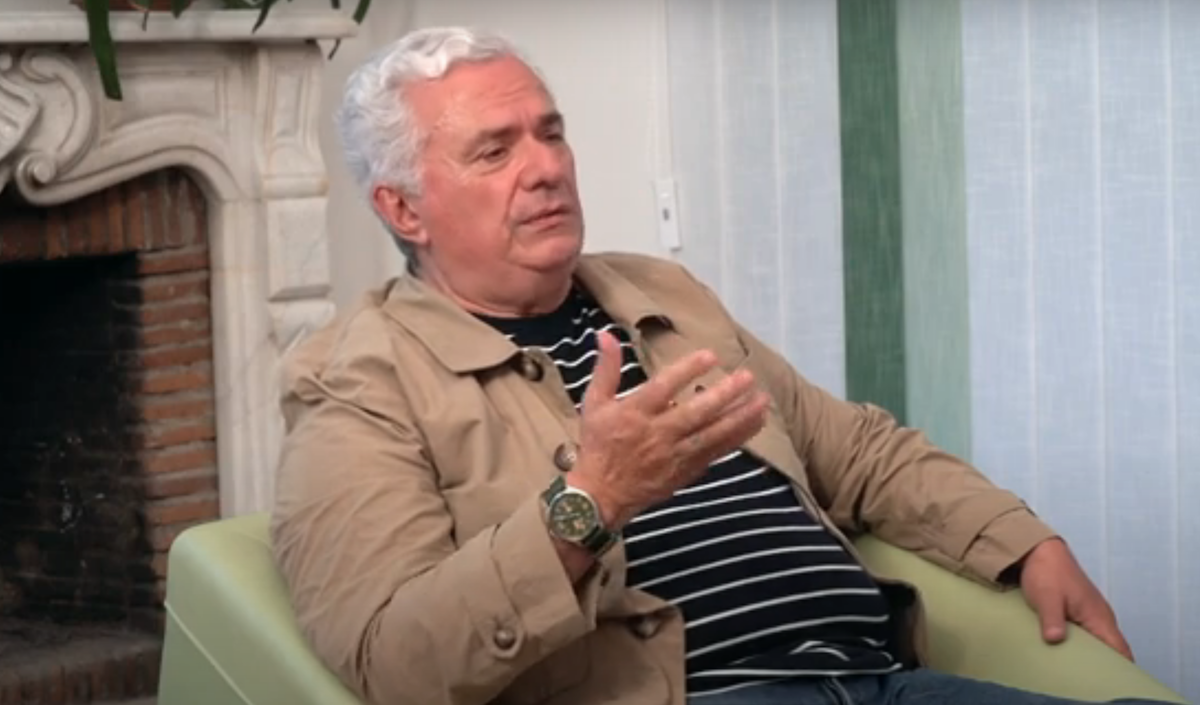Dancing, language, archery - "national hobbies" gaining popularity in Abkhazia
“National hobbies” in Abkhazia
In Abkhazia every year more and more people give preference to “national” hobbies. Children and adults learn to dance Abkhazian dances, take up archery… or speak their native language.
Dancing lessons for a future daughter
“Sveta Lalala” – under this nickname she is known on Instagram. Although many years ago, when creating her page, Sveta Shtyreva had no idea that one day she would have a dance studio called “Lalaland”.
Sveta started dancing at the age of 10, and at 16 became a soloist of the main ensemble “Sharatyn” and entered the choreographic department of the Sukhumi Cultural-Educational School.
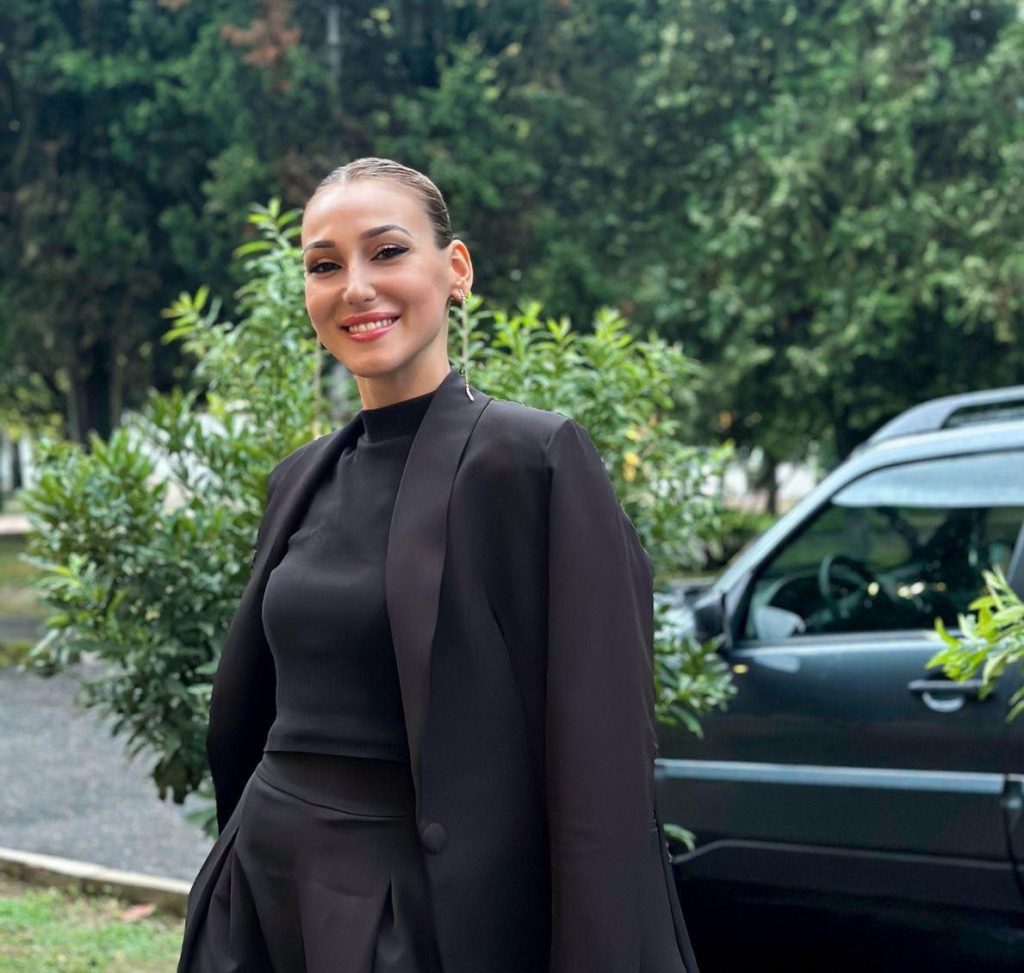
She decided to open her studio in 2019, and after a few months had a full client roster.
“I started doing individual classes and realized that I love it. It’s a completely different thing. Over time I disbanded the groups, which at that time already had 40 people in them. I realized that practicing individually is much more productive.”
Now Sveta has 60 students on her waiting list.
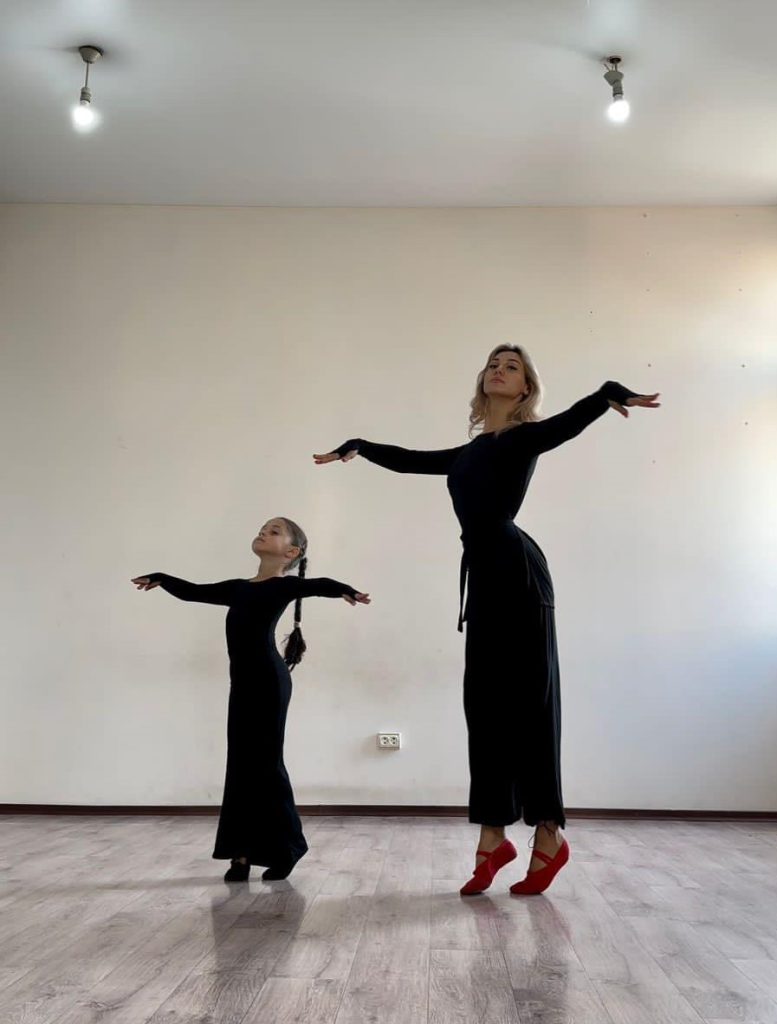
The wait lasts from six months to two years. The problem is that the places are practically never vacated – people do not stop practicing dancing. Everyone’s goals are different: some people just want to get away from routine, while others want to dance beautifully at a wedding, where the national dance is an integral part of the celebration.
Sveta says that although in her studio you can learn dances of all peoples of the Caucasus, for her it is very important to promote Abkhazian culture:
“We live in Abkhazia and we should know our dances. It is like the ABC of our choreography. And it is important for me that my students know their own dance, and then, of course, we can teach other dances.”
Archery as a form of psychotherapy
Ilona Vouba is a psychologist with ten years of experience. A few years ago, she shot a bow for the first time and immediately decided to order her own. For some time she practiced at the only archery club at that time, Afirkhy, and took part in tournaments. Soon she had her first student, a little boy. Then came his friends, classmates….
The number of students increased almost daily. And when there were 30 children, they began to ask Ilona to unite them into their own club and hold their own tournaments. This is how the archery club “Shooting Stars” appeared, which today includes more than 50 people.
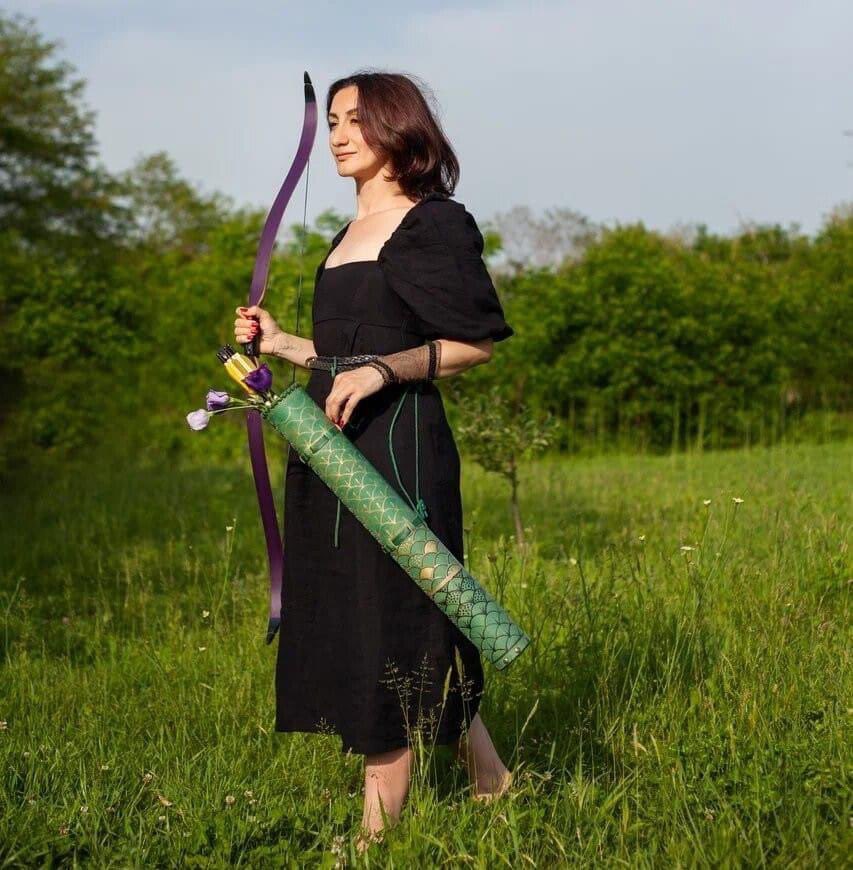
“People of the older generation tell me that when they were kids they used to make homemade bows out of walnut sticks and shoot. My post-war childhood didn’t have that culture. Over time it has waned, and I think our children should be touching history in this way as well,” Ilona Vouba says.
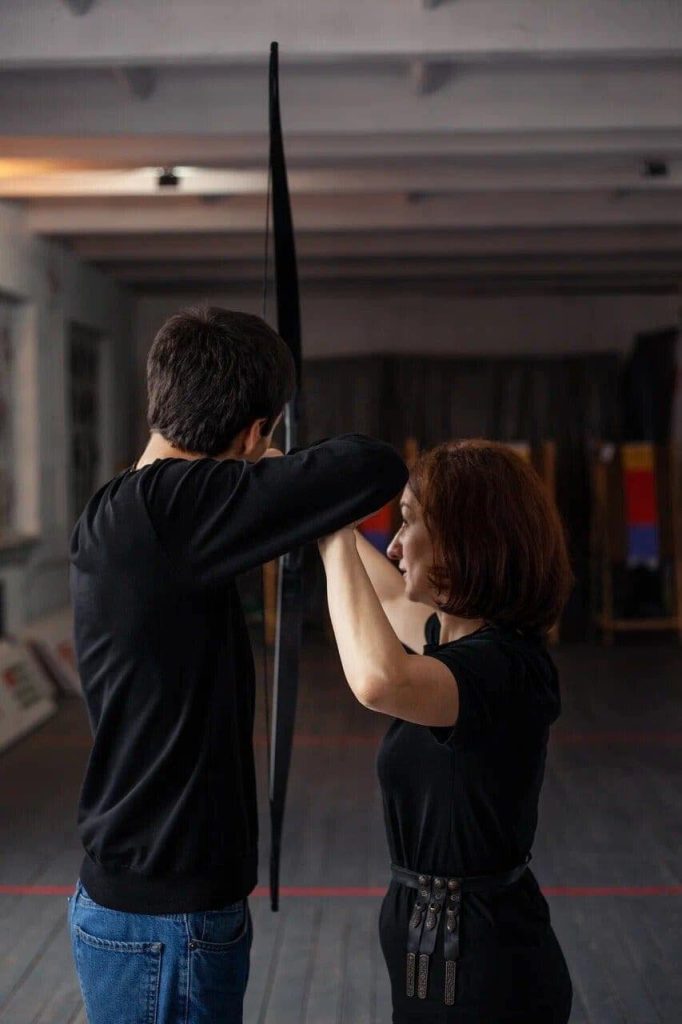
Members of the Shooting Stars club are five years old and up. Many adults are also interested in trying their hand at archery. According to Ilona, it is far from just a sport, but also a type of psychotherapy:
“We immerse ourselves in history, in language, in our own condition. Shooting is psychotherapeutic. Despite the developing personal individualism, a person still needs to feel part of a certain ‘we’. And the reliability of ethnic community is in its stability, in the impossibility of being excluded from the ethnos. Connection with roots has a rather positive effect on the speed and success of therapy. The secret is to bring the knowledge, skills and wisdom that our genetic part generously shares with us.”
Unfamiliar Mother Tongue
Saria Khashig, a 25-year-old philologist, works for the repatriation committee and teaches Abkhazian. Her students are predominantly Abkhazians who want to learn or tighten up their native language, as Russian has virtually supplanted Abkhazian over the decades due to historical circumstances.
“One guy wanted to learn Abkhazian after a trip to Armenia. When he saw that absolutely everyone there speaks and communicates with each other in their native language, he wanted it to be the same here in his homeland. So he decided to start with himself.”
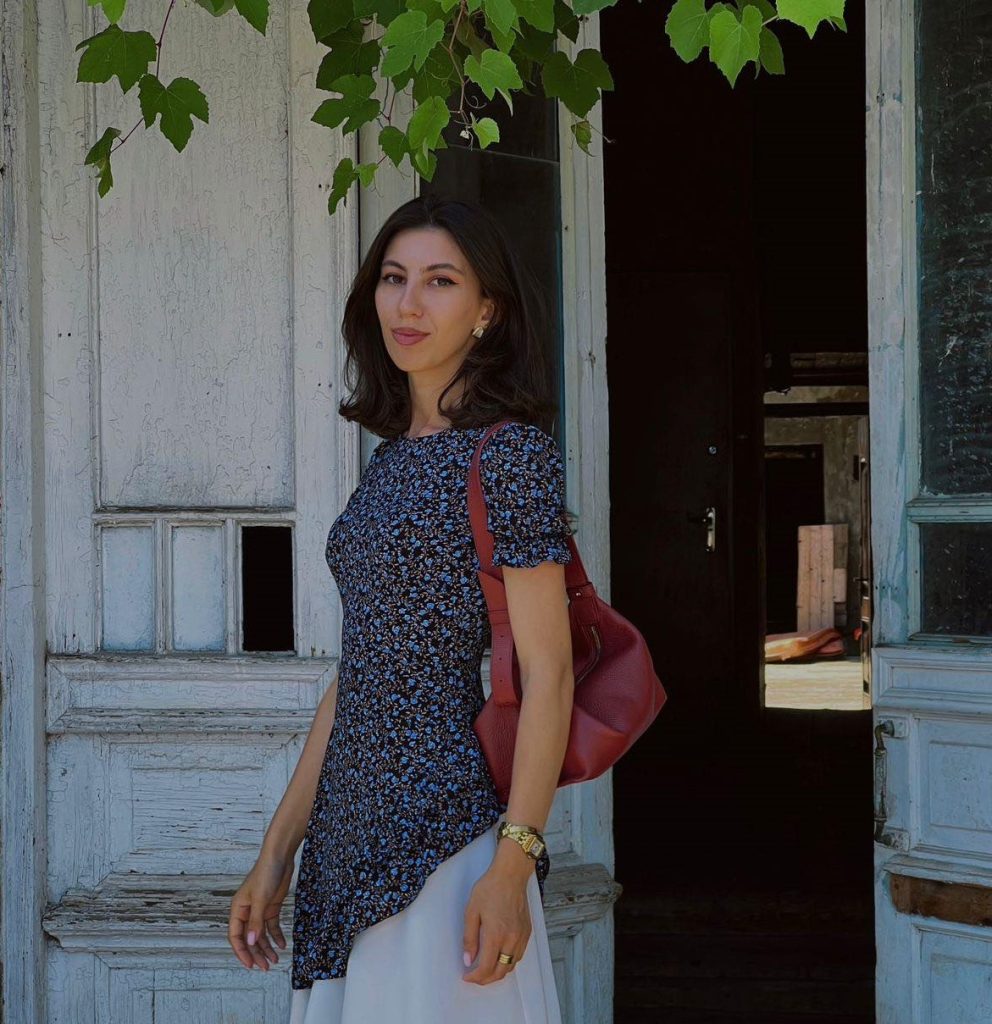
She adds that every year she is approached by more people of other nationalities who also want to learn Abkhazian:
“Everyone’s motivation is different. One girl, who is married to an Abkhazian, said that it is important to her that her children speak Abkhazian and so her mother should speak it to them. There is a student who moved from Belarus in the summer and says that here for the first time she felt at home. She loves our country and culture. When they gather with local friends and they speak Abkhazian, she wants to keep up a conversation with them.”
Since 2023 Saria has been teaching free group classes in Abkhazian at the site of the AbkhazDesk NGO.
“The first time, in spring, we recruited almost 40 people. And in September, when we announced the second enrollment, 67 people signed up to us in 24 hours. We even had to stop enrollment earlier than planned. But even after that, people wrote to us saying they really wanted to take the class.
Saria Hashig builds her classes on dialogue and it is important for her to become not only a teacher but also a friend to her students. Mutual trust, according to Saria, helps to acquire a language. And she considers her mission very important:
“I am proud that I can benefit people, our country. And I am especially motivated by the results. I want every Abkhazian to know their native language, and people of all nationalities who want to learn it to have the opportunity to do so.”
Toponyms, terminology, views and opinions expressed by the author are theirs alone and do not necessarily reflect the views and opinions of JAMnews or any employees thereof. JAMnews reserves the right to delete comments it considers to be offensive, inflammatory, threatening or otherwise unacceptable










